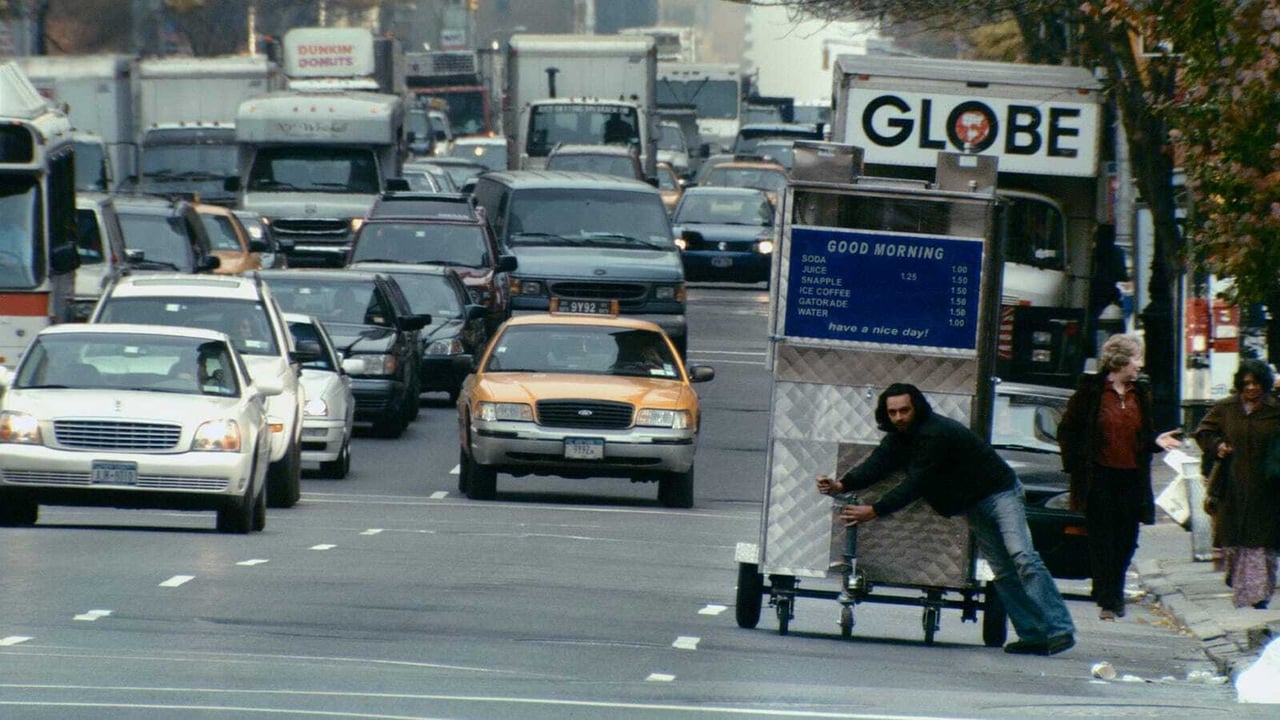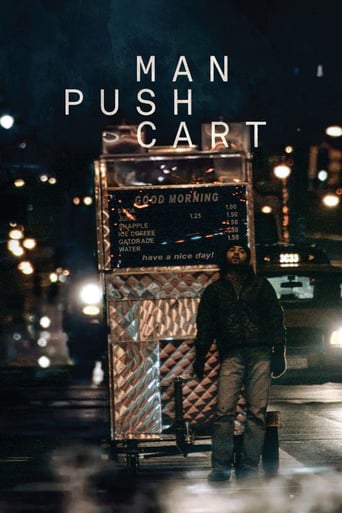

Excellent, Without a doubt!!
... View MoreOne of the best movies of the year! Incredible from the beginning to the end.
... View MoreThrough painfully honest and emotional moments, the movie becomes irresistibly relatable
... View MoreAfter playing with our expectations, this turns out to be a very different sort of film.
... View MoreA meditative study of struggle and loneliness, following a Pakistani man who schleps his food cart (in a most Sisyphus-like manner) through the streets of New York in the wee hours every morning and tries to scratch out enough money to survive and hopefully see his son once in a while. The casual pace, restrained performances and attention to detail are naturally reminiscent of Bresson, and by extension, the Dardennes. Specifically, it has much in common with MOUCHETTE and ROSETTA. However, it doesn't have the emotional resonance of those films. Somehow the miseries piled upon Ahmed feel a bit more contrived. He's not just living in a harsh world, he seems to have bad luck thrust upon him. Still, it's a thoughtful film with a relatable lead performance by Razvi. I also liked Leticia Dolera, the Spanish newsstand girl. The other actors are a mixed bag, with Charles Daniel Sandoval coming off as particularly poor. Even if this film didn't quite satisfy me, it did leave me curious about Bahrani's later work.
... View MoreTo me, this film represents a new variety of the bad movies. So the 3 stars I give it are mostly for inventing a new genre. There are many bad movies out there but not similar to this one.From the very beginning, I could not understand if I was watching a documentary or a movie. For a documentary, it was lacking a voice-over. Plus, the supporting characters' behavior/motivation looked a bit too scripted/contrived. For a real movie, it lacked the plot and the dialog. For a real movie that is just so out there that it does not need either a plot or a dialog, it lacked that spark of life and originality that captures your imagination and keeps you glued to the screen until the end (and then you want more).We meet a Pakistani immigrant who used to be a popular singer in Lahore and who is now reduced to doing menial work in NYC in the name of, I suppose, the great American Dream. I say "I suppose" because we never find out exactly how he got here and what he wants in life (besides seeing his son). The House of Sand and Fog, Before Night Falls, Mississippi Masala, heck, even The Kite Runner did it before and did it better (and that list is not exhaustive).There are some good technical things about the movie. The monotony of his existence is represented very well by showing how he gets the cart ready every morning by lining up cups, taking out bagels, etc. Exactly the same sequence is shown twice - at the beginning of the movie (in his own cart) and at the end (in the friend's cart). But what happened in between does not qualify as full feature film. A technically excellent film school project, but very weak if reviewed otherwise.
... View MoreThere really aren't enough films made about the modern experience of immigrants in America. There's a huge vein to be mined there. Man Push Cart is a step in the right direction. This film follows a Pakistani immigrant in New York City who sells drinks and donuts from a push cart. He was a pop star in his native country, but is now reduced to nothing. It's a simple story, entertaining and moderately involving, told decently enough. Unfortunately, when you step back and look at it, it's all pretty vapid. Director Bahrani clearly aims for neorealism, even echoing The Bicycle Thieves at points, but the neorealist classics aren't nearly as simplistic as a lot of people tend to think. Here, the characters are two-dimensional, the situation is pretty shallow, and the distantly foreshadowed climactic event feels like a cheap ploy. I'd hardly call it a bad film, but I think much more could have been done with the subject.
... View MoreMan Push Cart opens with almost ten minutes of visual sequence without dialogue. Perhaps the remaining 80 minutes of film would have been better if they followed suit.Filmmaker Ramin Bahrani's story of a Pakistani immigrant who spends his days in New York City selling coffee and pastries from a sidewalk cart starts off with what seems to be a promising look at the life of one of those individuals the rest of the city takes for granted. Operating in relative silence for several scenes, the film casts a documentary-like eye on the routine minutiae that fills protagonist Ahmad's (Ahmad Razvi) life as a street vendor. Immediately, the repetition of similarly structured morning scenes allows the viewer understands the tedium Ahmad faces early each day as he prepares his cart for his customers, with whom he makes the typically asinine small talk that amounts to the only form of human interaction he has on a regular basis.As painful as these forced encounters are to watch on screen, the dialogue that occurs later within Ahmad's "real" interactions proves brutal to the audience's filmic, rather than emotional, sensibilities. As for the film's narrative, poorly written dialogue paired with poorly performed discourses leads to what could arguably be termed the cinematic crash of Bahrani's metaphorical push cart.With two previous filmsBackgammon (1998) and Strangers (2000)under his writer/director belt, Bahrani should realize by now that a compelling idea does not automatically translate into a compelling film. Unnatural dialogue has a way of undermining even the most promising character's potential. So do unbelievable events.Man Push Cart begins its long decline when Ahmad strikes up an unusual friendship with new customer and fellow displaced Pakistani Mohammed (Charles Daniel Sandoval). Presumably out of a sense of cultural hospitality, the financially well-off Mohammed offers Ahmad a night job as his personal maintenance man before recognizing Ahmad as a former Pakistani rock star and pop icon. Naturally, Mohammed is curious as to why one of his teenage Pakistani idols now works as a street vendor in Americajust like the audience. Apparently Ahmad offers a suitable answer to this query during an off-screen chat over a few beers, but the audience is left to ponder the reasons for Ahmad's strange displacement indefinitely.Bahrani's poorly structured narrative consistently alludes to the contrast between Ahmad's former life and his present condition without ever explaining what exactly happened to drive him from fame to a push cart. Ever vague, the film suggests that Ahmad's transformation from artist to vendor had something to do with his wife, who is now mysteriously deceased. This question, too, rests heavily over much of the film, particularly as Ahmad ponders over his feelings for a fellow street vendor, Noemi (Leticia Dolera). However, the most nagging uncertainty that runs throughout the second half of Man Push Cart is why a successful and well-connected businessman like Mohammed would want to steal Noemi from Ahmad, when he clearly has the power to pick up many a city socialite.Such an improbable set of circumstances may be forgivable in a narrative that ultimately delivers on its intended purpose, but Man Push Cart evolves into such a mess of far-fetched situations, affected narrative style, and unconvincing performances that the promising story of Ahmad-the-street-vendor gets lost in the muck of unrealistic love triangles and unanswered questions. Assuming that Bahrani was attempting to relate the tale of one man's struggle against a harsh and indifferent world, it is fair to say that his point would have been better made if he ended the film about ten minutes after he began.This review was first posted on www.cinemattraction.com
... View More